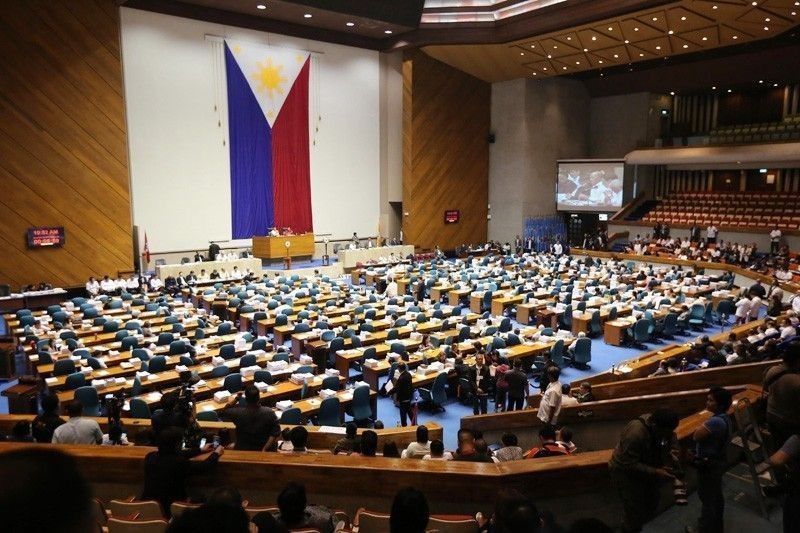Back to square one for 2020 national budget

MANILA, Philippines — The House of Representatives-Senate conference on the proposed P4.1-trillion national budget for next year is back to square one.
The conference is supposed to reconcile the two chambers’ versions of the budget, but conferees decided to discard both versions and use the National Expenditure Program (NEP) as basis for coming up with a common draft of next year’s spending program.
The NEP refers to the President’s original spending proposal, which Congress uses to come up with a national budget. The decision to go back to it apparently stemmed from the wide disparity between the House and Senate drafts of the 2020 outlay.
In its version, the House realigned P9.5 billion, including a P3-billion addition to the palay procurement fund of the National Food Authority (NFA), increasing it to P10 billion.
On the other hand, the Senate introduced a whopping P206 billion in realignments, which included removing the House’s P3-billion palay buying augmentation and transferring it to the Land Bank, which was mandated to lend it to local government units, also for palay procurement, at an annual interest rate of two percent.
For the entire P3 billion, the state-owned commercial bank stands to make P60 million in interest income on money that belongs to taxpayers.
“We disregarded the amendments (realignments) and started with the NEP in our discussions with Sen. (Sonny) Angara,” Davao City Rep. Isidro Ungab, who heads the House appropriations committee, said yesterday.
He and Angara, his Senate counterpart, jointly chair the budget conference.
He said each chamber would come up with its own amendments all over again and the conference committee would reconcile the proposed changes.
He added that both chambers could revive their original suggested amendments.
Some House conferees, including Minority Leader Bienvenido Abante Jr. and Deputy Speaker Aurelio Gonzales Jr. of Pampanga, want their panel to insist on the P3-billion augmentation for palay procurement that would allow the NFA to expand its market intervention and prop up palay prices.
In a privilege speech last week, Gonzales said rice farmers from Pampanga’s third district, which he represents, lost P4 per kilo of palay yield in last month’s wet season crop harvest.
Angara has said Senate agriculture committee chair Cynthia Villar is the proponent of the removal of the House augmentation.
Villar has said she wanted the money given as cash assistance to farmers or beneficiaries of the Pantawid Pamilyang Pilipino Program, but that is not what is contained in the special provision the Senate has written in its budget version governing the use of the P3 billion.
Sen. Panfilo Lacson is expected to continue pushing for his “institutional amendments,” including a P3.174-billion funding for the upgrading of the basic pay of government nurses as mandated by a recent Supreme Court decision and P2.15 billion for the national identification system.
On schedule
Despite their decision to go back to the NEP, Ungab and Angara are optimistic that their panel could finish its job by weekend. They have set a meeting for the entire conference committee for Monday, during which panel members are to sign the report containing the two chambers’ common version of the 2020 national budget.
Later on Monday, the House and the Senate are set to ratify the committee report, then print the final budget bill and send it to President Duterte for scrutiny before Dec. 21.
The conference committee’s work timeline and the plenary ratification schedule have been cleared with Speaker Alan Peter Cayetano and Senate President Vicente Sotto.
Cayetano had assured the President that he would have a budget bill on his desk before yearend.
Explaining her proposed amendment to the NFA budget, Villar said farmers would benefit from the transfer of P3 billion to the Land Bank of the Philippines, which would release the funding assistance to farmers affected by the initial implementation of Republic Act 11203 or the Rice Tariffication Law.
She allayed fears that the transfer of the funds would undermine palay procurement by the NFA.
DOH appeal
Meanwhile, the Department of Health (DOH) is urging the Senate to observe the status quo on the budget allocation for subdermal implants, saying the products have been proven safe and effective.
Health Secretary Francisco Duque III said there was no reason for the budget for contraceptive implants to be removed.
Duque was reacting to the Senate’s decision to cut the DOH’s budget by P195 million supposedly intended for the procurement of the implants in 2020.
The health chief noted the budget is “necessary to sustain an effective family planning program” in compliance with provisions in the Responsible Parenthood and Reproductive Health (RPRH) law. He added the products have already been “cleared by the Food and Drug Administration as non-abortifacient.”
Commission on Population executive director Juan Antonio Perez III voiced support for the DOH’s position as he expressed concern over the impact of the budget cut on the program in the second half of 2020.
“The action is regrettable since there is no scientific basis for its removal since the FDA has not declared it as contrary to the provisions of RPRH law. There is no evidence that the implants are abortifacient,” he said. – With Cecille Suerte Felipe, Sheila Crisostomo
- Latest
- Trending


























